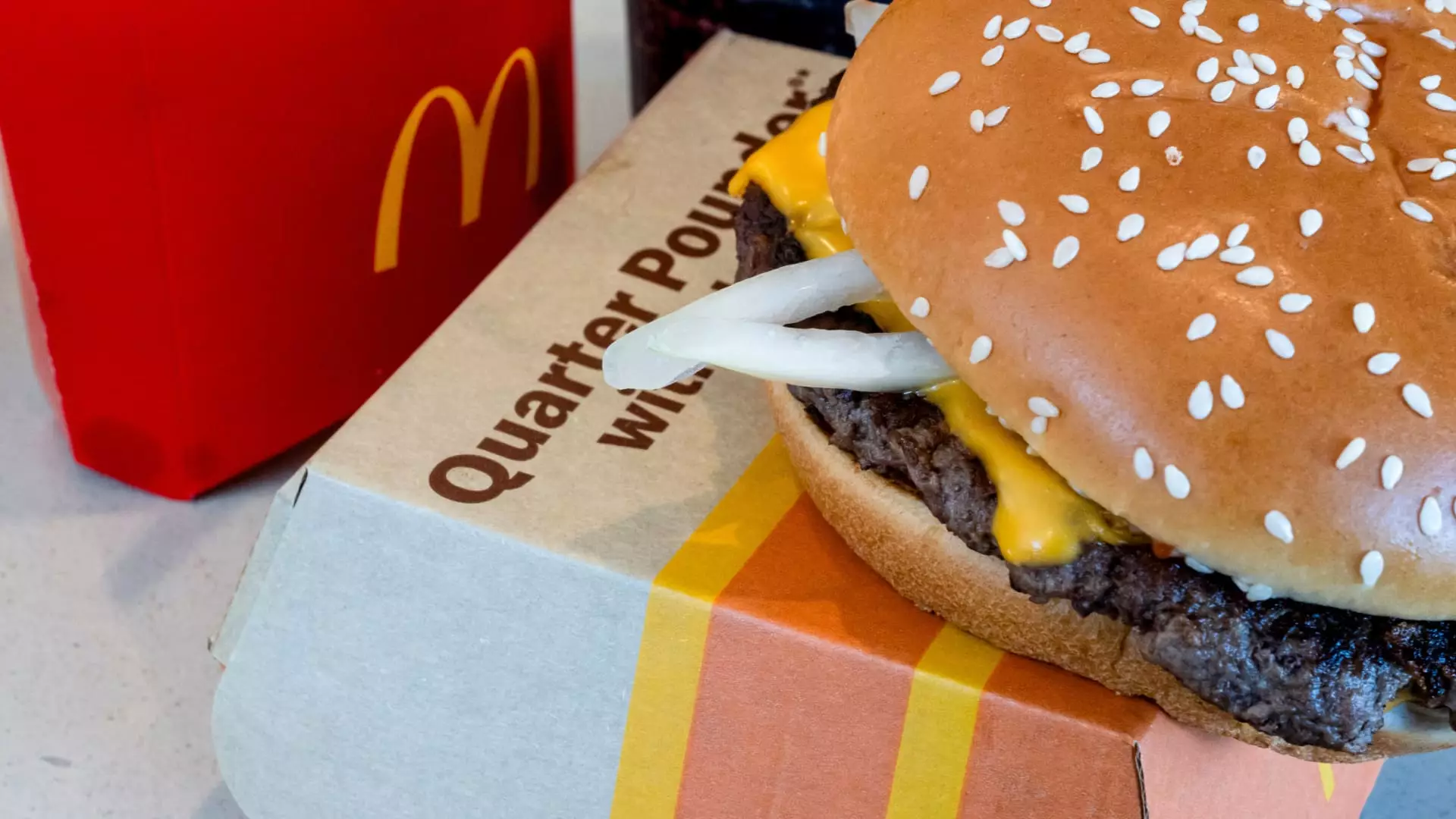The food industry is no stranger to crises, particularly concerning foodborne pathogens. A recent E. coli outbreak linked to McDonald’s Quarter Pounders has raised significant health concerns, triggering a national investigation and shedding light on the complexities surrounding food safety. This incident has implications not just for public health but also for the fast-food giant’s reputation and financial stability.
The Scale of the Outbreak
According to information from the Centers for Disease Control and Prevention (CDC), the outbreak has resulted in 75 confirmed cases across 13 states, prompting alarm among health officials and consumers alike. Among those infected, 22 individuals have required hospitalization due to severe symptoms, including one reported fatality—a tragedy underscoring the serious nature of E. coli infections. The age range of infected individuals spans from 13 to 88, revealing that anyone can be vulnerable to such foodborne illnesses.
As the CDC continues to investigate the situation, they emphasize that the actual number of infections could be significantly higher. Many individuals may recover without seeking medical help, and it can take weeks for testing to confirm a connection to the outbreak. Such underreporting poses a challenge for public health officials attempting to fully understand and contain the spread of E. coli.
The financial repercussions for McDonald’s are already evident. Following the announcement of the outbreak, the company’s stock saw a decline of 2% and has fallen 6% overall since the situation unfolded. This downturn is concerning for a company that has been experiencing sluggish sales as consumers become increasingly price-sensitive. The Quarter Pounder, a flagship menu item for McDonald’s, generates substantial revenue, and any long-lasting perception of risk could have lasting effects on sales.
To combat potential damage to its image, McDonald’s is promptly addressing the crisis. The corporation has paused the distribution of slivered onions—identified as a probable source of contamination in the outbreak—in numerous states and has delisted Quarter Pounders from many of its restaurants. Their response aims to reassure customers that they are taking the necessary actions to prioritize safety and food quality. However, the trust that consumers have in their favorite fast-food chains is not easily rebuilt, and swift action may only temporarily alleviate concerns.
In investigating the outbreak, health officials are scrutinizing the supply chain intricacies involved in food preparation, particularly focusing on slivered onions sourced from California-based Taylor Farms. Taylor Farms has voluntarily recalled several onion products linked to the outbreak, showing a commitment to consumer safety. Other fast-food competitors like Burger King, Pizza Hut, Taco Bell, and KFC have followed suit by removing onions from their offerings to ensure consumer safety.
Yet, the investigation does not end with produce. The CDC is considering whether the beef patties might also contribute to the outbreak, illustrating how complex and intertwined the food supply chain can be. As agencies work together to trace the origins of the infection, the incident raises pertinent questions about food safety protocols and industry oversight.
Looking Towards the Future
As McDonald’s prepares to report its third-quarter earnings, the company’s leadership faces intense scrutiny. Expectations for a modest growth of 0.5% in same-store sales hang in the balance, and how the outbreak will affect customer behavior remains uncertain. Experts suggest that unless the situation escalates into a broader crisis, the brand may rebound quicker than anticipated.
Yet, this incident exemplifies a precarious balance between operational efficiency and robust safety measures. As the food landscape evolves, consumers are becoming more informed about food safety, and companies must prioritize transparency and accountability.
While this outbreak necessitates immediate action for containment, it serves as a reminder of the ongoing challenges within the food service industry. Fast-food giants and suppliers alike must remain vigilant in implementing rigorous safety standards to protect their customers. In the end, establishing and sustaining consumer trust will be essential for the survival of brands in a market where the value of food safety cannot be overstated.

